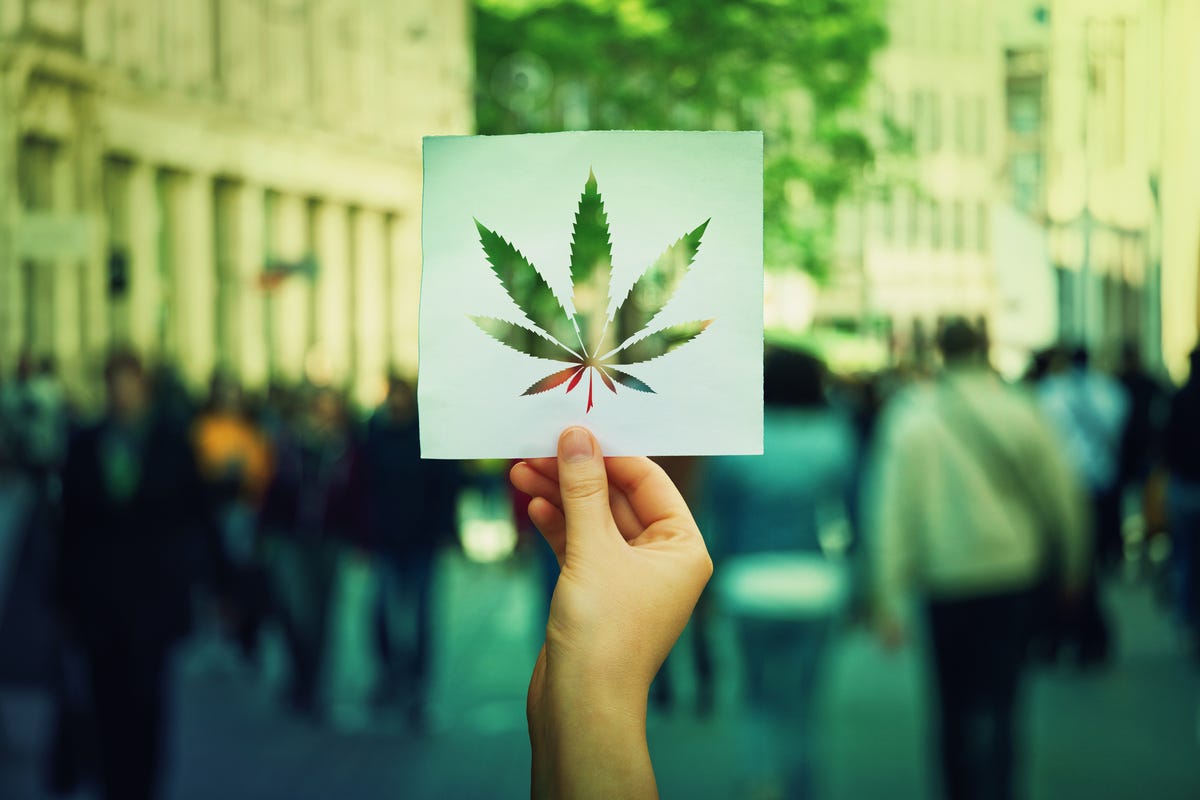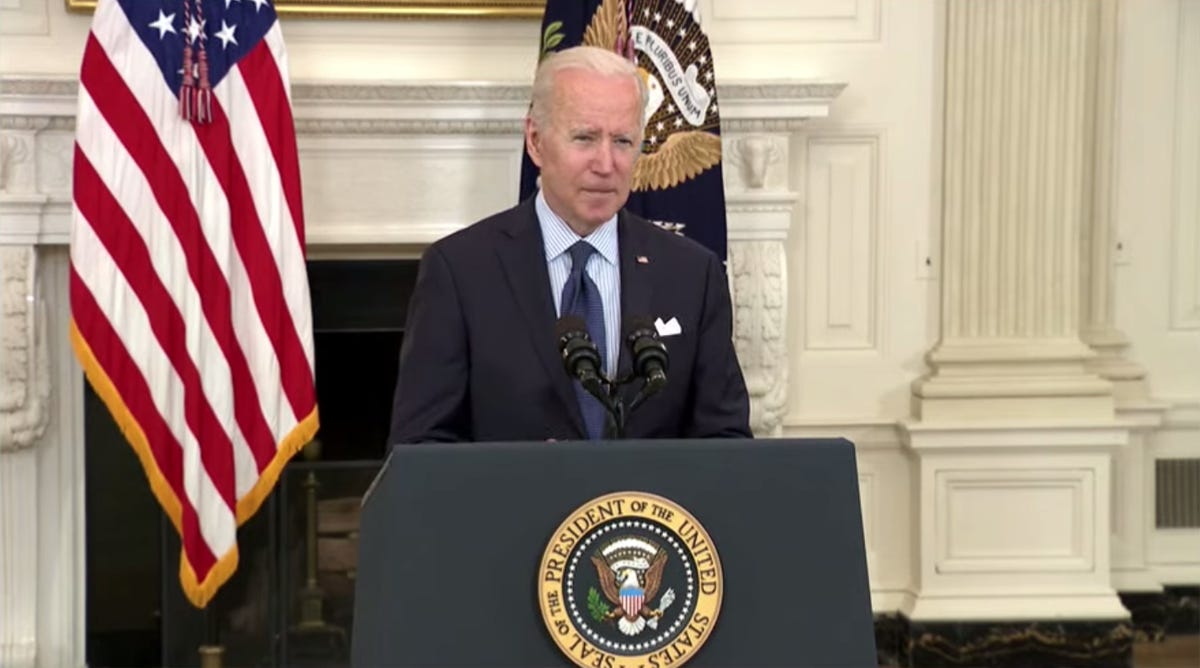Despite being registered as a Schedule I controlled substance by the federal government, marijuana has been legalized for recreational purposes in 19 states and for medical use in 38.
A constitutional amendment filed in Florida on Aug. 8 would allow recreational cannabis use in the state by people 21 or older. Florida voters previously passed an amendment in 2016 to broadly legalize medical marijuana.
Since then, nearly 800,000 residents have received medical marijuana licenses, more than half after the start of the pandemic.
Recreational cannabis alone was a $15 billion industry in 2021. That figure is on target to surpass $25 billion by 2025, according to Statista.
Here’s what to know about marijuana legalization, including which states have passed laws, what happens to the CAOA next and how Americans feel about legal weed.
Which states have legalized medical marijuana?
As of July 2022, 38 states have legalized the medical use of cannabis to varying degrees, according to the National Organization for the Reform of Marijuana Laws: Alaska, Alabama, Arizona, Arkansas, California, Colorado, Connecticut, Delaware, Florida, Hawaii, Illinois, Louisiana, Maine, Maryland, Massachusetts, Michigan, Minnesota, Mississippi, Missouri, Montana, Nevada, New Hampshire, New Jersey, New Mexico, New York, North Dakota, Ohio, Oklahoma, Oregon, Pennsylvania, Rhode Island, South Dakota, Utah, Vermont, Virginia, Washington and West Virginia.
In addition, the District of Columbia and the territories of Puerto Rico, Guam, the Northern Mariana Islands and the US Virgin Islands have all legalized medical marijuana.
Each jurisdiction has its own criteria regarding what conditions cannabis can be prescribed for, at what amounts and what the process is for issuing medical marijuana licenses to qualified residents.
Recreational use of marijuana for adults is legal in 19 states and the District of Columbia.
Heath Korvola/Getty Images
Which states have legalized recreational marijuana?
According to the National Conference of State Legislatures, 19 states and the District of Columbia have legalized the adult use of marijuana for recreational purposes: Alaska, Arizona, California, Colorado, Connecticut, Illinois, Maine, Massachusetts, Michigan, Montana, New Jersey, New Mexico, New York, Nevada, Oregon, Rhode Island, Vermont, Virginia and Washington.
Marijuana is also legal for medical purposes in all these localities. In addition, recreational cannabis is legal in Washington, DC, Guam and the Northern Mariana Islands.
What does federal law say about marijuana?
Under the Controlled Substances Act of 1970, the Drug Enforcement Agency still classifies cannabis as a Schedule I drug, “with no currently accepted medical use and a high potential for abuse.” (Other Schedule I drugs include heroin and LSD, while cocaine is listed as a Schedule II drug.)
In 2013, President Barack Obama directed the Justice Department to defer to state authorities in jurisdictions that had legalized marijuana, “based on assurances that those states will impose an appropriately strict regulatory system.”
Known as the Cole Memorandum, this guidance was rescinded in 2018 by Jeff Sessions, attorney general under President Donald Trump. Marijuana legalization advocates have encouraged President Joe Biden to direct current Attorney General Merrick Garland to reinstate the Cole memorandum.
What’s the Cannabis Administration and Opportunity Act?
Now filed in the Senate, the Cannabis Administration and Opportunity Act would end the federal ban on cannabis and give state-compliant cannabis businesses access to financial services like bank accounts, business loans and credit card transactions.
The 296-page bill also addresses a federally mandated impaired-driving standard, cannabis industry workers’ rights, and penalties for possessing or distributing large amounts of cannabis without a permit, Marijuana Moment reported.

The Senate plans to introduce its own cannabis legalization bill this spring.
Getty Images
“Hundreds of millions of Americans live in states that have legalized cannabis in some form while it remains illegal at the federal level,” Schumer, Wyden and Booker wrote in a February letter calling for input from fellow lawmakers.
That discrepancy “breeds confusion and uncertainty,” they said — and raises numerous questions in areas from small-business growth to public safety.
Advocates of legalization hope the bill will get a vote this session, while the Democrats still hold the Senate.
“McConnell would never bring these things to the floor,” Schumer said last year, according to Politico. “We’ll move forward and try to get this done as soon as we possibly can.”
What’s the MORE Act?
A separate bill, the Marijuana Opportunity and Reinvestment Expungement Act, passed the House in April. It would also abolish federal criminal penalties for those growing, possessing or distributing cannabis and expunge nonviolent cannabis convictions.
The MORE Act institutes a tax on cannabis to help communities impacted by decades of policing focused on nonviolent crimes related to marijuana use. The money would pay for programs such as job training, legal aid and youth mentoring.

Three-quarters of US states have legalized marijuana to some extent, though it remains a scheduled substance on the federal level.
Bulat Silvia
It wouldn’t require states to legalize cannabis, however. Regulation would be left up to state lawmakers.
It originally passed the House in December 2020, the first time either chamber approved repealing federal marijuana prohibition, but a matching bill in the Senate wasn’t taken up for consideration.
The same thing may happen this time: Even if it does come up for a vote in the upper chamber, it would need 10 Republicans and all Democrats to give their support.
“It is unlikely to pass the Senate in its current form,” Michael S. Lavery, a cannabis analyst at financial services firm Piper Sandler, told clients, according to Yahoo Finance.
Are there other marijuana legalization efforts in Congress?
As more states legalize medical and recreational marijuana, an increasing number of lawmakers want to square up federal laws so they don’t conflict with state regulations.
In late March, the Senate unanimously approved the Cannabidiol and Marihuana Research Expansion Act, which would streamline the application process for researchers who want to study the medicinal value of cannabis and related products.
“This important legislation will cut the red tape around the research process, helping get FDA-approved, marijuana-derived medications safely to patients,” Sen. Dianne Feinstein of California, a sponsor of the bill, said in a March 24 statement.

The Secure and Fair Enforcement Banking Act would grant state-licensed marijuana businesses access to financial services.
Marguerite Reardon/CNET
On Feb. 4, the House passed the Secure and Fair Enforcement Banking Act, which would grant state-licensed marijuana businesses access to financial services. Rep. Ed Perlmutter, a Democrat from Colorado, first introduced the bill in 2019. He said he’s confident it will finally clear the Senate this session.
“I think this is the bill that’s going to break the ice, and then other things can be added or advocated for, over the course of the next few months or years,” Perlmutter told Yahoo News.
How do Americans feel about legal marijuana?
According to a 2021 Pew Research poll, 91% of Americans believe cannabis should be legalized to some degree — 31% for medical use and 60% for both medical and recreational use. Only 8% of respondents said marijuana should not be legal at all.
An April 2022 CBS News/YouGov poll showed even stronger support, with 66% percent of respondents believing recreational marijuana should be legal at both the state and federal levels.
Does President Biden support legal weed?
During the 2020 presidential campaign, then-candidate Biden promised to “decriminalize cannabis use and automatically expunge prior convictions.”
According to Biden’s campaign website, “No one should be in jail because of cannabis use.”

While campaigning for president, Joe Biden said he supported leaving regulation of recreational marijuana to individual states.
Screenshot by Corinne Reichert/CNET
The site promised that as president, Biden would “support the legalization of cannabis for medical purposes, leave decisions regarding legalization for recreational use up to the states, and reschedule cannabis as a Schedule II drug so researchers can study its positive and negative impacts.”
But in July 2021, then-White House press secretary Jen Psaki said Biden opposed the full legalization of marijuana. The White House has also terminated staffers for marijuana use.
Though the president can’t repeal federal marijuana laws on his own, he can grant amnesty to people with federal convictions for nonviolent marijuana-related crimes. He can also reinstate Obama-era guidance to the Justice Department not to prosecute low-level marijuana offenses or interfere with state marijuana laws.
Biden could also throw his weight behind CAOA and similar bills.
“Biden and his party both are in need of political wins, and relaxing marijuana laws — or fully legalizing the drug — is extremely popular,” Alex Shepard wrote for the New Republic in December.
What’s the difference between legalization and decriminalization?
Many states that have legalized marijuana initially decriminalized possession of a small amount. Broadly speaking, cannabis “legalization” means passing laws that allow the buying, selling and possession of marijuana, usually with restrictions on the age of the consumer and the amount purchased.
Decriminalization, on the other hand, typically means that violating certain marijuana laws can still result in fines or other penalties but not criminal charges or jail time.
In North Carolina, possession of half an ounce of marijuana or less is considered a Class 3 misdemeanor punishable by a $200 fine, “but any sentence of imprisonment imposed must be suspended.”
In Nebraska, the first-offense possession of an ounce or less is punishable by a maximum fine of $300 and a possible requirement to complete a drug education course. A second conviction is considered a misdemeanor, punishable by a maximum fine of $500. Subsequent convictions are also misdemeanors, punishable by a maximum fine of $500 and up to seven days in jail.
